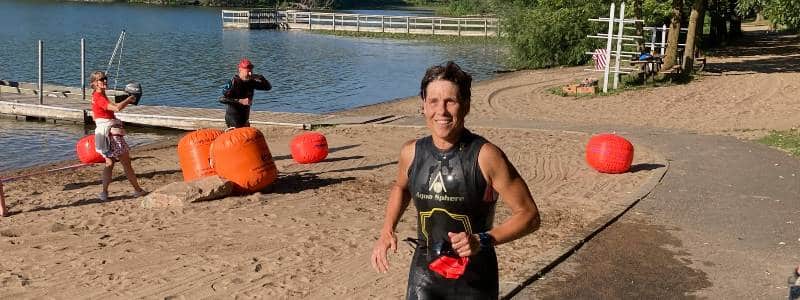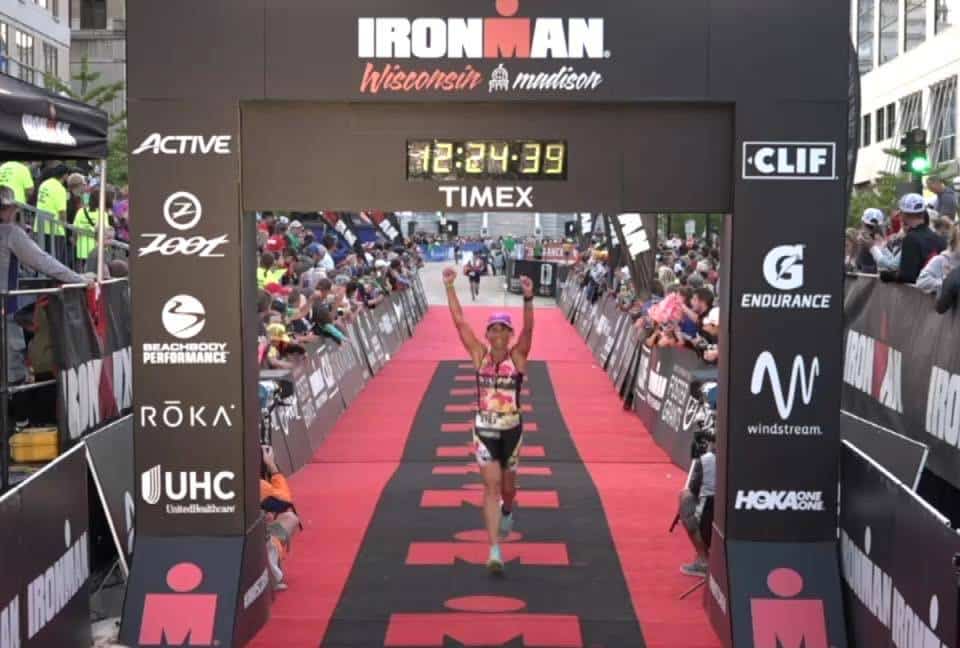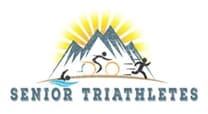How A Coach Can Help Throughout Your Triathlon Journey

Why should I use a triathlon coach? This is a question asked by many triathletes in various stages of their triathlon journey.
Triathlon coaches have helped many senior triathletes navigate their triathlon training and racing. This is true for first timers, competitive master triathletes with decades of experience, and those in between.
After rejoining Lifetime Fitness during our visit to Minnesota this summer, I sat down with Cheryl Zitur, personal trainer and senior triathlete, to get her thoughts on several triathlon training-related questions, most of which have come from members of our community over the past months.
About Cheryl Zitur
Before I dive into sharing Cheryl’s thoughts on how a triathlon coach can help you along your triathlon journey, let me tell you a bit about her.
Cheryl came to triathlon with a background in competitive swimming during high school and college. At age 41, she trained for and completed her first sprint triathlon, the Buffalo Triathlon (Buffalo, Minnesota).
This first triathlon reignited the competitive spirit from her swimming days. After a couple of years competing in triathlon, Cheryl began exploring ways of training that would improve her performance and make her more competitive. Within two years, Cheryl experienced her first age group win.
It was time for a new goal, one that eventually led to her winning her first triathlon at age 49.
With a more effective approach to training, Cheryl was on a roll. She went on to win 18 more triathlons as a senior triathlete.
Along the way, Cheryl started training for longer distance triathlons, including Olympic, IRONMAN 70.3, and IRONMAN. It was at the beginning of this part of her triathlon journey that Cheryl first hired a coach to help her train for the longer distance races.
In 2013, Cheryl left her career in accounting to become a personal trainer, triathlon coach, and, more recently, coach of the Masters swim group at Lifetime Fitness in Maple Grove, Minnesota.
Today, Cheryl is a Certified Personal Trainer (CPT), Corrective Exercise Specialist (CES), and Performance Enhancement Specialist (PES) with certifications from NASM (National Academy of Sports Medicine). She is also a Level 1 USAT Triathlon coach and IRONMAN Certified Coach.
During the summer, Cheryl also runs an 8-week kids triathlon club for girls and boys ages 8 to 14. The goal of the club is to introduce young people to the sport of triathlon.
Navigating Life While Continuing With Triathlon
Many triathlons double as fundraisers for causes that help others, young and old, locally and across the world. Cheryl has demonstrated this spirit while continuing her triathlon journey.
In 2016, a year before completing her first IRONMAN triathlon, Cheryl donated one of her kidneys to her oldest son. While being a lifesaver for her son, donating her kidney has not hindered her performance or ability to remain active in triathlon.
Cheryl encourages others – triathletes and everyone else – to consider being a living donor and to check the donor box when the opportunity presents itself.
Triathlon As A Journey
Some seniors complete a triathlon, check this off their bucket list, and move on to the next item.
However, it is far more common that the first-time triathlete becomes ‘hooked’ on the sport. Triathlon is just the motivation needed for them to train consistently and maintain a healthy lifestyle, so they continue to compete.
Many who continue with triathlon do so with new goals. These include getting faster and going longer distances.
What I heard from Cheryl, who has been on her own triathlon journey as well as helped others on theirs, is that a coach can help triathletes at the various stages along the way.
I love helping people get to the finish line.
Cheryl Zitur
Coaching for First Time Triathletes
If you can swim, bike, and run, you are starting your triathlon journey from a good place. But you are not there yet. Triathlon is more than swimming, biking, and running as individual sports.
If you doubt this, go for a 45 minute fast paced bike ride. Then, immediately after getting off the bike, go for a 3-mile run.
How do you feel? A little wierd?
A triathlon coach will help you learn to run after the bike leg.
A coach will also help the first-timer prepare for the inevitable chaos that every triathlete faces during an open water swim start. He/she will also help the new triathlete plan the swim-to-bike and bike-to-run transitions.
A triathlon coach will show beginners how to put together the various pieces of a triathlon and complete distances in each sport back-to-back at a pace matching their level of fitness.
Helping You Become More Confident
Chances are you have one leg of the triathlon in which you are weaker than the other two.
From your questions, swimming is that leg for many of you. This is especially true when the swim is in open water. This is also Cheryl’s experience with the beginner triathletes she coaches.
Having come from a background of competitive swimming, Cheryl leads a Masters swim class in which new swimmers and swimmers who lack confidence can pick up the basic skills for swimming. Along the way, they become more confident.
She also leads a group, many of these triathletes, who head out into the open water once each week. By swimming in various conditions, triathletes gain the confidence to tackle the swim leg no matter the conditions.
Cheryl also advises her students to use a wetsuit, that is, if the water temperature is within a range where USAT rules allow use of a wetsuit. A wetsuit will cover a multitude of swimming ‘sins’ by keeping the body and legs high in the water.
While a coach cannot guarantee your confidence, they will help you be more prepared for the unknowns.
Coaching For a Longer Distance Triathlon
Many triathletes progress to compete in longer distance races. You can find many such stories on this site.
Related Posts:
- What If I Want to Do An Ironman Triathlon? – Tom Lipp’s Story
- The Road to Ironman Triathlon – Laurent Labbe’s Story
- A Healthy Retirement Plan – Mark Bartolomeo’s Story
A progression from sprint to Olympic to half or full IRONMAN is common, even among those in their 60s, 70s, and beyond. Cheryl appreciates the differences between training for and racing in the varying distances, having completed all of them, from sprint to IRONMAN.
What seems to be a small step in going from the sprint to the Olympic distance, especially when you consider IRONMAN distances, turns out to not be so small.
Nutrition is huge for any race over two and a half hours long.
Cheryl Zitur, Lifetime Fitness
For sprint distance triathlons, the winning approach involves going more or less all out (Zone 4 in a triathlon coach’s language) for the entire race. However, each longer distance brings additional considerations.
For example, compared to the sprint distance, the Olympic distance triathlon introduces another dimension to the training and race plan – nutrition consumed during the race. And longer distances each bring new challenges. For example, training for a full IRONMAN triathlon often requires 12 to 14 hours per week during the last months.
A coach with the education and personal experience of training for and racing in the various distances seems essential, especially for the IRONMAN races.

Coaching for Better Performance With Age
Once you have witnessed the awards ceremony at a triathlon and decided to continue competing, you will probably want to be faster.
It’s possible. Some triathletes deliver their best performance later in their triathlon careers. They are faster now than they were ten years ago.
So, you want to be on the podium some day. How do you get there?
There are a lot of books on triathlon training you can read. The internet is full of material as well. However, many seniors realize that most of the literature in print or on the internet assumes a younger triathlete, at least someone 40 years or younger.
But the needs of our community differ significantly from the younger triathletes.
According to Cheryl, the most important difference between coaching a 30-year-old triathlete and a 60 to 70-year-old triathlete is the need for recovery. Older athletes are more prone to injury and therefore require more time for recovery between hard training sessions.
As noted in Rest and Recovery: Why It’s Important for Senior Triathletes, recovery does not mean retiring to the sofa. Cheryl prescribes active recovery, including yoga and other forms of stretching that develop core strength and balance.
Smarter Training for Senior Triathletes
Balancing training and recovery is part of what Cheryl calls ‘smart training’. This is her focus with all the endurance athletes she coaches.
The training often begins with a treadmill test to measure an individual’s heart rate versus running pace. From this, she will define the person’s four heart rate zones, which are used as the basis for an individual’s specific training plan.
The training plan she prepares will include the right mix of training within the various heart rate zones. A typical schedule will include about 80% of the training time in heart rate zones 1 and 2 for building aerobic base fitness and one workout per week in each of zones 3 and 4 for cardiovascular fitness.
The training schedule will also include strength training (an important element of training that is often the first to be cut by most triathletes), active recovery, and rest.
Finally, a triathlon coach will also help with specific issues, such as bike handling or the swim stroke, based on the triathlete’s needs.
Conclusion
Reflecting on my conversation with Cheryl Zitur, I wondered if, by remaining self-coached, I have missed an opportunity to become a stronger competitor.
A triathlon coach can help the beginner triathlete prepare and complete their first triathlon. Beyond this, a coach can guide the triathlete to new goals, whether it is to longer distance races, higher performance and competitiveness, or both.
Do You Use A Triathlon Coach? Why?
What are your thoughts about hiring a triathlon coach? Or maybe a coach for one of the legs, for example swimming? Share your thoughts and questions in the Comments below.
